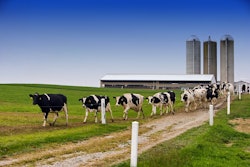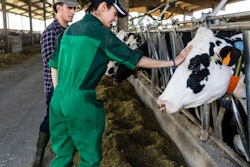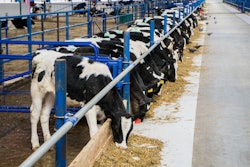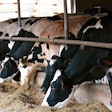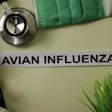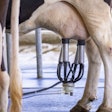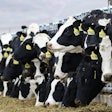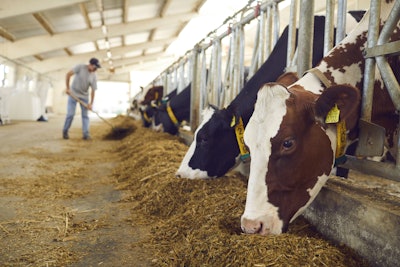
The Texas Department of State Health Services (DSHS) has reported the first human case of avian influenza (H5N1) in a patient who became ill after contact with dairy cows presumed to be infected with avian influenza.
The patient’s primary symptom was conjunctivitis, DSHS said. DSHS, along with local, regional, state and federal partners, is investigating this ongoing situation.
H5N1 viruses have only rarely been transmitted from person to person. As such, the risk to the general public is believed to be low; however, people with close contact with affected animals suspected of having H5N1 have a higher risk of infection. DSHS said suspicion for H5N1 should be heightened for people who have had contact with animals suspected of having the virus.
In recent days, dairy cattle in Texas, Michigan and Kansas have tested positive for H5N1. The U.S. Department of Agriculture (USDA) on March 29 said presumptive positive test results have also been received for additional herds in New Mexico, Idaho, Ohio and Texas.
Signs of infection in humans
People who have symptoms and relevant exposure history should consider the possibility of H5N1 infection. This includes people who have had close contact with a person with suspected or confirmed H5N1 infection, affected animals or unpasteurized milk from dairy farms with suspected H5N1.
Signs and symptoms of H5N1 infection may include:
- Fever (temperature of 100F or greater) or feeling feverish or chills
- Cough
- Sore throat
- Runny or stuffy nose
- Headaches
- Fatigue
- Eye redness (conjunctivitis)
- Difficulty breathing/shortness of breath
- Diarrhea
- Nausea
- Vomiting
- Seizures
Although not commonly associated with seasonal influenza, conjunctivitis has been observed in H5N1 virus infections.
Illness in humans with H5N1 virus have ranged from mild to severe. Reports of severe H5N1 illness in humans have included fulminant pneumonia leading to respiratory failure, acute respiratory distress syndrome, septic shock and death.
If providers encounter a patient with symptoms compatible with H5N1 infection and exposure to affected animals is suspected, they should immediately consult their local health department.
Federal agencies are working with state and industry partners to encourage farmers and veterinarians to report cattle illnesses quickly so they can monitor potential additional cases and minimize the impact and risk to farmers, farmworkers, consumers and other animals. Producers are urged to work with their veterinarian to report cattle illnesses quickly and practice enhanced biosecurity measures.


